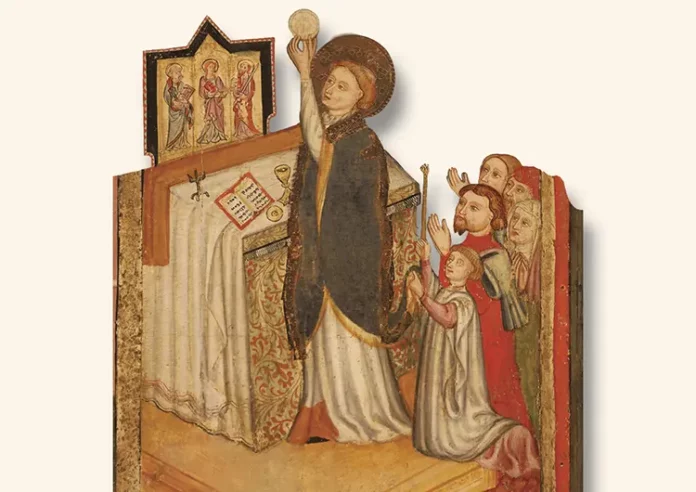Catechism of the Catholic Church
§§ 1591-1592 The whole Church is a priestly people. Through Baptism all the faithful share in the priesthood of Christ. This participation is called the “common priesthood of the faithful.” […] The ministerial priesthood differs in essence from the common priesthood of the faithful because it confers a sacred power for the service of the faithful.
In his first epistle, St. Peter states that the baptized constitute “a chosen race, a royal priesthood” (2:9). This priesthood common to all the faithful requires us to consecrate ourselves to the service of the Lord and the Church, since it enables us “to offer spiritual sacrifices acceptable to God through Jesus Christ” (2:5). It means, therefore, a commitment to personal holiness and to the apostolate, proclaiming Our Lord through the good works of a steadfast Christian life, adorned with sacrifices and strengthened by the reception of the Sacraments.
However, some wrongly conclude that the difference between this “royal priesthood” to which we were raised by the waters of regeneration, and the ministerial priesthood of priests and bishops, is insignificant.
In the Book of Exodus, the chosen people are called “a kingdom of priests and a holy nation” (19:6). However, even among them, the members of the tribe of Levi were chosen as priests on behalf of men, “to offer gifts and sacrifices for sins” (Heb 5:1b).
Of those descendants of Abraham according to the flesh, we Catholics are the only true and faithful continuators, as St. Paul emphasizes: “So you see that it is men of faith who are the sons of Abraham” (Gal 3:7). And among the baptized there are also some men “chosen and consecrated by the sacrament of Holy Orders, by which the Holy Spirit enables them to act in the Person of Christ the Head.”1
The offering of “gifts and sacrifices” made by the priest of the Catholic Church, therefore, does not come from a delegation of the faithful. In his priestly ordination, he receives “a power that God gave to neither Angels nor Archangels,”2 in order to be a mediator between the Lord and His people (cf. Heb 5:1a). This is an immense power, according to St. Ambrose,3 for the priest does in the name of Jesus Christ everything that He did in His earthly life.
Above all, in Holy Mass the priest works the transubstantiation of bread and wine into the Body and Blood of Christ. No man is capable of performing such a stupendous miracle: “The priest, a figure of Christ, pronounces these words, but their efficacy and grace are from God,”4 explains St. John Chrysostom. And the Catechism summarizes: “It is Christ Himself, the Eternal High Priest of the New Covenant who, acting through the ministry of the priests, offers the Eucharistic sacrifice.”5
Thus, as a result of the multiplication of priestly ordinations, “in the poorest church in a village, at the moment Mass is celebrated, God is offered a worship infinitely superior to that offered by innocent Adam in Terrestrial Paradise.”6 ◊
Notes
1 CCC 1142.
2 ST. JOHN CHRYSOSTOM. De sacerdotio. L.III, n.5: PG 48, 643.
3 Cf. ST. AMBROSE. De pænitentæ. L.I, c.8, n.34: PL 16, 476-477.
4 ST. JOHN CHRYSOSTOM. De proditione iudæ. Homilia I, n.6: PG 49, 380.
5 CCC 1410.
6 GARRIGOU-LAGRANGE, OP, Réginald. El Salvador y su amor por nosotros. Madrid: Rialp, 1977, p.179.


